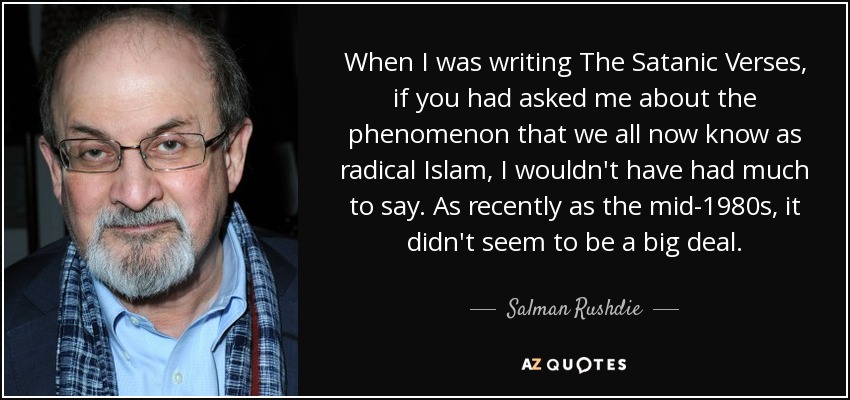Monday, September 19, 2016
Free Will by Sam Harris
The Oxford English Dictionary of Philosophy seems to allude to the fact that the world of philosophy, for the most part, doesn’t really believe in free will. The school of thought that chocks free will up to an illusion is Determinism and apparently it is seen as a given. The only two schools that are allegedly held to challenge determinism are compatibilism and libertarianism (not to be confused with the political party, thinking, etc). Not only are these two schools relatively unpopular, they don’t even appear to believe in free will; they seem more concerned with the implications of responsibility. This, at best, maintains that free will is a useful illusion, but an illusion all the same.
It is the general, I-don’t-give-a-rip-about-academic-philosophy-public that perpetuates the specious illusion of free will. It is Sam Harris’ job in his essay, aptly titled Free Will, to dispel the beloved illusion. By my incredibly ammature standard he can only do this by making an argument people can follow, allaying any fears about the implications of dropping the illusion, and by writing a book people will generally want to read.
Harris’ compelling argument consists of applying a very simple question to all things we perceive as free will; “where is the freedom in that?”. Basically if we can’t account for our desires, urges, fears, and reactions, we cannot attribute what follows from them as free will. It can be a hard leap to make; I want to believe that I chose to read this book, but I can’t differentiate between what prompted me to and what would have prompted me not to. So where was I free to make a choice? Breaking it down to the simple application of a question makes the argument relevant and useful when considering what you’re subjected to in day to day life. This allows you to maintain control despite not really being ‘in control’. As Harris puts it; “you do not control the storm, you are not lost in the storm, you are the storm”.
Many people might posit that without, at the very least, the illusion of free will we might become listless or immoral. Here Harris’ job gets easier. Free will is an illusion without which we can become more aware of what we are, products of the physical world - our surroundings, our physiology, our biology, our instincts etc etc (there are infinite possibilities which I don’t doubt is why the illusion of choice laid out before us persists). By manipulating the physical world or having it manipulated for us we can still lead fulfilling lives full of awareness, understanding, and action*.
For example, let’s say you have a problem with eating too many Zebra Cakes at one time. If you imagine this is your choice and simply a matter of resisting the wrong choice (eating Zebra Cakes) and making the right choice (not) then there is no doubt you will still have a problem with Zebra Cakes. This is because you cannot control your desire for Zebra Cakes, you cannot control the chemical effect they have on you, and you cannot control your desire to want one after the other (among, again, an infinite number of possibilities beyond your control that determine your actions). There are some days that you don’t eat too many Zebra Cakes and seemingly resist the need to eat many at one time. It is here the illusion gets dangerous; you are falsely attributing any number of things beyond your control to will power. It isn’t as though you made your urge go away, it just didn’t trump, say, your fear that your wife would leave you if you didn’t kick this Zebra Cake habit, or the way your lunch digested, or an infinite of number of possibilities that simply reduced your desire or trumped it.
Ultimately it doesn’t matter, if you keep subjecting yourself to that what you desire, you’re going to give in. Every. Time.
Let’s strip the illusion away. You know beyond a doubt, despite an unexplainable good day every so often, that you are going to gorge the shit out of Zebra Cakes if they are at home whether or not you like it. You cannot make your desire for Zebra Cakes simply go away, so after reading Sam Harris’ book Free Will you realize you have to make the Zebra Cakes go away. This requires both awareness - where is your urge for the ZCs the strongest? When does it seem to diminish? What are you doing when hunger strikes? - and action; you realize you have no craving for Zebra Cakes at the store so you don’t buy them OR you do have a craving for Zebra Cakes at the store so you go to a store that doesn’t have them or you go to the store with someone who can stop you from buying them. This level of awareness and action, likely not present when you believe you can willfully make the right choice, seems to be exactly what people are afraid will disappear should the illusion of free will shatter.
(*Two side notes here: None of that was Harris’ example, he does a far better and more concise job of declawing the implications of abolishing the illusion of free will. By action I don’t mean you have free will, you’re spurred to action by your lack of belief in free will - or at least your capacity to stop eating Zebra Cakes - and/or fear and/or frustration and/or dumb luck. If you follow your action to where it came from there is no way it was free will, but hey, it’s better than just laboring under the idea things beyond your control are just going to magically disappear one day!)
Honestly the hardest thing Harris will have to contend with in his argument is writing a book people will want to read and be receptive to. Scratch that, there is really nothing he can do to make people respective to this idea, people love free will. What he can do is what he did; Harris kept the book simple, kept it very short, and he left out (apart from an absolutely chilling intro to the essay) any controversial examples. The only problem is that Harris is a controversial figure. Conservatives tend to hate him because he is an atheist or because he doesn’t believe all people on food stamps are snakes, but liberals tend to hate him because he isn’t a cultural relativist and probably comes off as islamophobic when he uses data to point out that a lot of modern Muslims think it’s still OK to throw gay people off of roofs.
Well...he tried anyway. If nothing else, and there is a lot else, Free Will is a fun read and gets you thinking. Even if you can’t follow Harris’ logic or think he sounds like a douche at times, it is still immensely important to think about free will and what we subject our subconscious to, being that it often affects our conscious actions. It is impossible to read this and think it is devoid of any truth, plus it --
You know what? Forget it. You’ll either have the urge to read Free Will or you won’t, but it isn't like you really have choice in the matter...
Wednesday, September 14, 2016
The Satanic Verses by Salman Rushdie
In college I wrote my capstone course’s final paper on Angela Carter’s Night at the Circus because I was enthralled by the idea of Magical Realism. The class was a Contemporary British Lit course and my professor, a true diamond in the small Midwestern college rough, assigned a lot of contemporary magical realism. As good as the class was I noticed that Rushdie was nowhere in sight. When I finally did pick up Rushdie’s the Satanic Verses it was for two distinct reasons and I was disappointed on both fronts. The first was because I hadn’t read much (if any) magical realism since taking said college course four years ago and the second was because the book’s reputation for controversy makes it seem like a relevant read in light of current events.
The Satanic Verses seems to be a series of dreams, or reincarnations, mythic retelling psych, or visions, or any/all of the above. I am not informed enough a reader to catch what is allusion, what is allegory, what is satire, and what are just purely imaginative riffs on reality. I know enough to discern that all of this is present, entertaining, and thought provoking but I also know that I’m missing something crucial. The allure of magical realism is that it pulls the energy and vibrant connotations behind mythology or theology and amalgamates them with modern themes grounded in realism, things like race or socioeconomics. The problem is I know next to nothing about Islam and did not read actively enough - which is to say I wasn’t googling for relevance every time I had an inclining to - in order to catch the connotations or implications that come from evoking its culture and traditions. This both is and is not Rushdie’s fault. Obviously I could have learned more about the topic at hand, the issue is that I was not inspired to. I think this is partly because Rushdie also belongs in the Hysterical Realism category. Those in this category - coined by James Woods who included DF Wallace, Zadie Smith, Rudie, and a few of their contemporaries - I’ve found are guilty of, at times, introducing armies of characters that stand to serve on the author’s whim. Maybe there is a particular societal indictment they wish to make on, say, police brutality. In the case of Rushdie, he created a character, complete with a cartoonish backstory, that perfectly illustrated talking points on the subject. The resulting character was too ridiculous to be real and too convenient to really be all that magical. The end result was that I was bored of these characters and didn’t care enough about them to inspire a more active read.
This translates directly into the second reason for my disappointment. It’s no secret that Rushdie received death threats emanating from the Ayatollah in Iran for this particular novel. In my experience it seems that some critical readers in the western world approach this book looking for an obvious and scathing criticism of Islam, or at least the beginnings of an argument. I, for one, am guilty of this. But Rushdie is a talented fiction writer, he exists in the world of representation and language as a craft, not telling one what to think. If it seems like a specious reason to be disappointed in a work of fiction that’s because it is. At the same time, Rushdie did receive death threats and had to go into hiding. While the Satanic Verses is irreverent, often lampooning the religion and the very idea that we can so conveniently make ancient ideas compatible with modern society, it is hardly groundbreaking as far as ideology is concerned. So what Rushdie was really threatened over was ability to write fiction, an ability you’d have to appreciate in order to find merit in the reputation preceding the death threat. This would have been the case had Rushdie’s merging of form and content really resonated with me, which it regrettably didn’t.

Of course, all of this is a huge injustice to Salman Rushdie and the Satanic Verses. Rushdie is a tremendously gifted fiction writer; his lyrical style can dance effortlessly from humor to tragedy and craft some of the most beautiful and fantastical passages I’ve ever read. All of which says nothing of his and his book’s obvious influence in some of my favorite authors, from Zadie Smith to Junot Diaz. The problem was the Satanic Verses did not scratch a particular itch. I think that if I had read Rushdie in the classroom with any number of resources at my disposal I would have written my college capstone course’s final paper on it instead of…well...this.
Subscribe to:
Posts (Atom)


